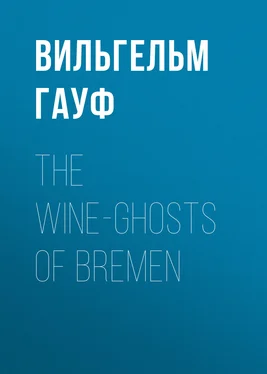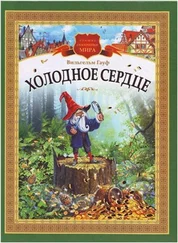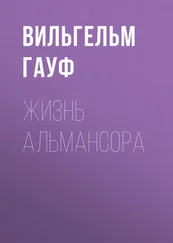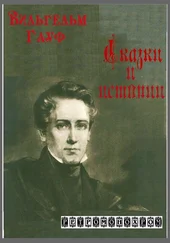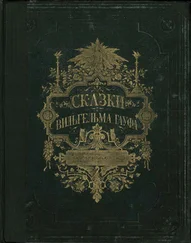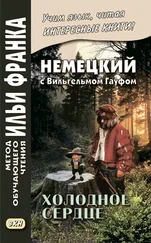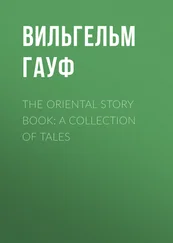Вильгельм Гауф - The Wine-ghosts of Bremen
Здесь есть возможность читать онлайн «Вильгельм Гауф - The Wine-ghosts of Bremen» — ознакомительный отрывок электронной книги совершенно бесплатно, а после прочтения отрывка купить полную версию. В некоторых случаях можно слушать аудио, скачать через торрент в формате fb2 и присутствует краткое содержание. Жанр: foreign_prose, foreign_antique, на английском языке. Описание произведения, (предисловие) а так же отзывы посетителей доступны на портале библиотеки ЛибКат.
- Название:The Wine-ghosts of Bremen
- Автор:
- Жанр:
- Год:неизвестен
- ISBN:нет данных
- Рейтинг книги:3 / 5. Голосов: 1
-
Избранное:Добавить в избранное
- Отзывы:
-
Ваша оценка:
- 60
- 1
- 2
- 3
- 4
- 5
The Wine-ghosts of Bremen: краткое содержание, описание и аннотация
Предлагаем к чтению аннотацию, описание, краткое содержание или предисловие (зависит от того, что написал сам автор книги «The Wine-ghosts of Bremen»). Если вы не нашли необходимую информацию о книге — напишите в комментариях, мы постараемся отыскать её.
The Wine-ghosts of Bremen — читать онлайн ознакомительный отрывок
Ниже представлен текст книги, разбитый по страницам. Система сохранения места последней прочитанной страницы, позволяет с удобством читать онлайн бесплатно книгу «The Wine-ghosts of Bremen», без необходимости каждый раз заново искать на чём Вы остановились. Поставьте закладку, и сможете в любой момент перейти на страницу, на которой закончили чтение.
Интервал:
Закладка:
'Cur Rosa Flos Veneris Bacchi depingitur antro,
Causa quod absque mero frigiat ipsa Venus.'
Other bad hexameters follow in other parts of the vault known as the Rose cellar; as for instance:
'Haec Rosa Luminibus Veneres Nectarque Palato
Objicit, exhalans pocula grata cadis:
Vina vetusta tenet, grandævi munera Bacchi;
Sint procul hinc juvenes; vos decet iste senes.'
They are in fact the sort of verses that the traditional Eton boy, who wrote verses for the whole of his Dame's house, could turn out at the rate of a couplet a minute, adding a few false quantities and concords by desire of the accomplice for whom they were written, 'because if you don't, you know, my tutor will never believe they're my own composition.' Finally, over the entrance door, on the other side of which is a medallion of Hauff, erected in 1876, comes the following:–
'Was Magen, Leib und Herz, Saft, Kraft, und Geist kann geben,
Betrübte trösten mag, halbtodte kann beleben,
Theilt diese Rose mit, sie hat von hundert Jahren
Den Preis ein edles Oel mit Sorgfalt zu bewahren.'
More could be quoted, but this breathes the spirit of the eighteenth century quite sufficiently for our purpose.
As for Roland, he is still in the marketplace, a wonderful fourteenth-century stone figure, nearly twenty feet high, not standing on a pillar, but simply on a pedestal about two feet from the ground. He would certainly find it remarkably difficult to sit down, even on a cask, for he has iron spikes to his knees, which would make him extremely uncomfortable if he bent them. He did not bow his head to me as I went away as he did to Hauff, which I felt deeply. It is generally believed that he only bows his head to those departing visitors who have had enough Nierstein to appreciate the compliment.
C. R. L. F.THE WINE-GHOSTS OF BREMEN
'Come, come, good wine is a good familiar creature if it be well used.'– Othello , ii. 3.
'There's nothing to be done with the fellow,' I heard them say, as they stumped down the stairs; 'nine o'clock and he is going to doze away his evening like a dormouse. He wouldn't have been like that four years ago.' They were not far wrong from their point of view, good fellows; for this evening there was to be a most brilliant musical tea and muffin fight with dancing and recitation, and these gentlemen had come to invite me (who was a stranger to the High Life of Bremen) to go with them. But I did not feel up to it. Some one, whom I had come to Bremen on purpose to visit, was not to be there, and what's the use of going anywhere where Some one isn't? Besides, I knew I should have to sing if I went, and I didn't choose to sing if she wasn't to be there to hear me. I should only spoil all their fun by looking sulky. I preferred to let them curse me for a dull dog for a few minutes on the steps, rather than let them bore themselves from nine to one in talking to my body only, while my soul would be whole streets off wandering about in the neighbourhood of the Frauenkirche.
It wasn't sleepiness though. I am not a habitual dormouse, and don't like being called one. No, I meant to be thoroughly awake that night, and one of my friends–it was you, Hermann–said as much when he got outside. 'He didn't look sleepy,' I heard him say, 'with those bright eyes of his. But he looked like a man who had been drinking either too much or too little, which probably means that he is going to make a night of it with the bottle, and alone.'
Prophetic soul! Did you know that my eyes were sparkling yet proleptically with the thought of old Rhenish? You didn't know that I had a permit from their High Mightinesses to greet my Lady Rose and the Twelve Apostles. And you certainly didn't know that it was my 'Retreat.' 1 1 Schalttag, lit. 'intercalary day'–used of the 29th of February in leap years–impossible to translate except by a circumbendibus. Hence we have borrowed from ecclesiastical phraseology a word which, to a certain extent, possesses the same meaning in English. So far as we are aware Hauff is peculiar in using Schalttag in this sense.
In my opinion the habit which I inherit from my grandfather of blazing, so to speak, the tree of life here and there with a notch, and spending a quiet day of meditation over each notch, is not a bad one. To keep the ordinary festivals of the Church only is hardly sufficient; one becomes commonplace, and one's thoughts are too apt to become commonplace on such days. But let the soul that keeps an anniversary of its own making keep it alone; look inwards for a few hours in the year instead of always outwards; sit down at the long table d'hôte of memory, people it with the shadows of the past, and then set to and make out the bill conscientiously. Such days as these my grandfather always kept, and called his 'retreats.' He didn't prepare a banquet for his friends, or pass the time in festivity at all; he simply sat down and feasted his own soul and talked to her in that inner chamber which she had occupied for five-and-seventy years. Even now I can trace, long as it is since the dear old man was laid in the churchyard, the marked passages in his Elzevir Horace which he always read on such days; and as I read, I can see his large blue eyes wandering thoughtfully over the yellow leaves of memory's book. He takes up his pen. Slowly and hesitatingly he draws the black cross beneath the name of some dear departed friend. 'The master is keeping his Retreat,' whispered the servants to us, as we grandchildren were running gaily and noisily up the stairs; and we repeated the words to each other, and imagined that he was making himself Christmas presents, and wondered how he managed to light up his own Christmas tree. And we were not far wrong. They were the tapers of affection that he was kindling upon the tree of Unforgetfulness, each taper the symbol of happy hours of a long life. And when his hours of solitude were passed, and we were admitted in the evening, he sat still and quiet in his chair as if he rejoiced like a child in the Heaven-sent Christmas gifts of the past.
Конец ознакомительного фрагмента.
Текст предоставлен ООО «ЛитРес».
Прочитайте эту книгу целиком, на ЛитРес.
Безопасно оплатить книгу можно банковской картой Visa, MasterCard, Maestro, со счета мобильного телефона, с платежного терминала, в салоне МТС или Связной, через PayPal, WebMoney, Яндекс.Деньги, QIWI Кошелек, бонусными картами или другим удобным Вам способом.
1
Schalttag, lit. 'intercalary day'–used of the 29th of February in leap years–impossible to translate except by a circumbendibus. Hence we have borrowed from ecclesiastical phraseology a word which, to a certain extent, possesses the same meaning in English. So far as we are aware Hauff is peculiar in using Schalttag in this sense.
Интервал:
Закладка:
Похожие книги на «The Wine-ghosts of Bremen»
Представляем Вашему вниманию похожие книги на «The Wine-ghosts of Bremen» списком для выбора. Мы отобрали схожую по названию и смыслу литературу в надежде предоставить читателям больше вариантов отыскать новые, интересные, ещё непрочитанные произведения.
Обсуждение, отзывы о книге «The Wine-ghosts of Bremen» и просто собственные мнения читателей. Оставьте ваши комментарии, напишите, что Вы думаете о произведении, его смысле или главных героях. Укажите что конкретно понравилось, а что нет, и почему Вы так считаете.
